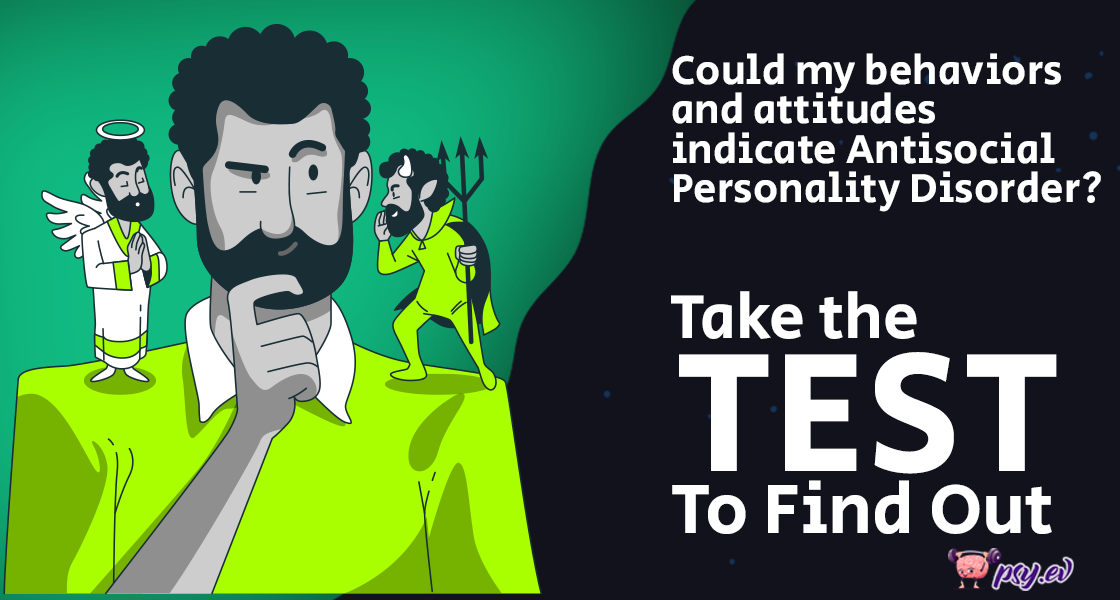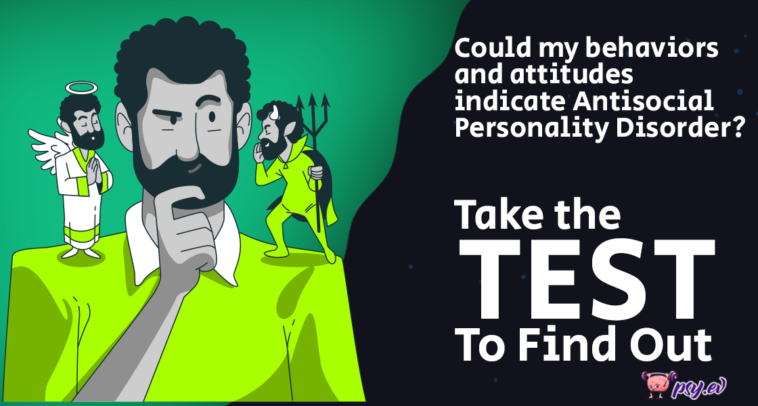Utilize the ASPD test results to help you determine whether you should consult a doctor or other mental health specialist and learn more about how to diagnose and treat antisocial personality disorder.
The DSM-5's antisocial personality disorder symptoms list is the foundation for this online screening tool. However, you can only receive a diagnosis and assistance in determining the best course of action from a skilled medical expert or licensed mental health practitioner.
Understanding Antisocial Personality Disorder
People are unique because of their unique blend of ideas, feelings, behaviors, or personalities. It concerns how individuals see themselves and perceive, comprehend, and react to the outside environment.
Childhood is when personalities are formed. Experiences, environmental factors, and inherited genes can influence the disorder. It is believed that antisocial personality disorder is a permanent illness.
The destructive and illegal conduct, in particular, may lessen in certain people with time. It's unclear if this decline is because of the effects of age on their mind and body, a growing knowledge of the negative effects of antisocial conduct on their lives, or a combination of these and other reasons.
People with ASPD frequently act erratically and show a careless disdain for both their own and others' safety. They frequently act impatient and hostile, engaging in physical altercations or assaulting others.
Children and adults with ASPD may captivate others to achieve what they want, then exhibit no remorse for harming or mistreating them. Deceit and manipulation are key to this personality disorder.
They frequently disobey the law and engage in conflict due to their constant impulse to defy societal norms and lack of both sorrow and regret for their prior wrongdoings.
People with ASPD can breach contractual and professional commitments. They frequently behave rashly and without giving the implications much thought.
Things to Know After Taking the Test
After completing the ASPD test online and getting the result, seek professional help for immediate treatment. Seeking professional help is the next best step for treating your disorder. However, individuals could go to their main healthcare practitioner for assistance if they have other symptoms like melancholy, anxiety, or explosive anger.
Additionally, antisocial personality sufferers might not accurately describe their symptoms. How a person interacts with others is a critical component of diagnosis. Family and friends may be able to provide valuable information with your consent.
The healthcare provider may send a patient to a mental health professional with experience in diagnosing and treating personality disorders following a medical examination to help rule out other medical illnesses.
Although ASPD is difficult to treat, some individuals may benefit from long-term treatment and close monitoring. Find medical and mental health professionals who have handled antisocial personality disorder treatment.
The intensity of a person's symptoms, situation, and desire to participate in treatment influence how they should be treated. ASPF is sometimes treated with talk therapy, often known as psychotherapy. Therapy may include controlling anger and violence, dealing with alcohol or drug use, and other mental health issues.
Addressing and resolving the disorder begins with the proper diagnosis. The antisocial personality disorder test is the first step toward that.


